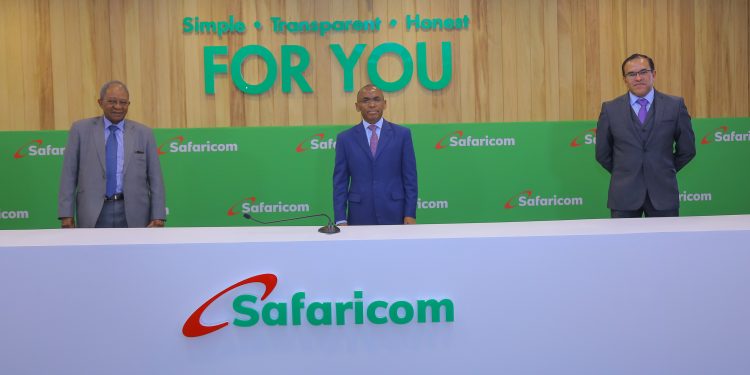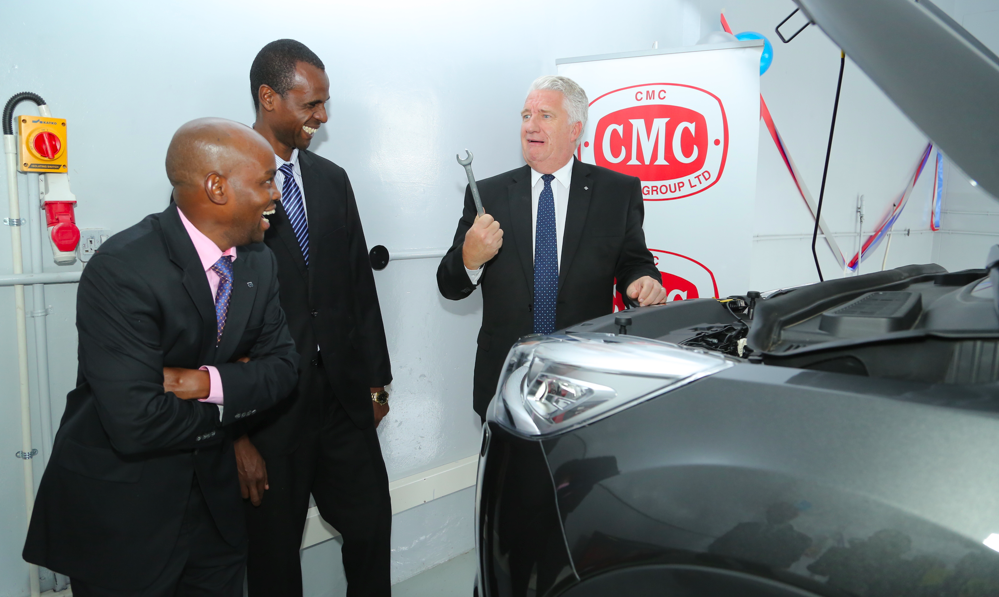The global pandemic has adversely affected most companies throughout the world. The short term impact is evident in the financial results being published and company announcements. Nonetheless, analysts and investors are optimistic that the negative effects will only be shortlived and in the long run, companies’ performance will improve.
During the 9th annual Frontier Markets Symposium, over 20 companies from Africa, Asia, the Middle East, and Europe presented to more than 70 emerging, frontier, and global investors. Safaricom, one of the companies’ at the symposium discussed the impact of COVID 19 on its performance and changes in the governance of the company.
The company’s new CEO Peter Ndegwa, who took office in April, sees opportunities in Business to Business and SMEs segment. He intends to use his extensive experience in FMCG to improve Safaricom’s relationship with customers. Peter Ndegwa noted the unique brand of the company, its impact on the Kenyan economy, and the value employees place on the company as Safaricom’s key strengths.
The board of Safaricom set the management team’s remuneration just before the new CEO took office. The remuneration is based on financial and non-financial metrics such as; service revenue, cash flow, earnings, net promoter score, brand, and employee rating.
Investors voiced concerns over the growing influence of Vodacom on Safaricom’s strategy after the two companies jointly acquired the Mpesa brand from the UK telecommunication giant Vodafone in April this year. Vodacom became one of Safaricom’s largest investors in May 2017 after it acquired a 35 per cent ownership from Vodafone.
The change in ownership structure led to a change in the composition of Safaricom’s board of directors. The board now consists of three nominees from Vodacom, one nominee from Vodafone group, representatives of the Kenyan government, a representative of the minority shareholders, among other members.
RELATED;
Podcast; Interview with Safaricom CEO Peter Ndegwa & CFO Sateesh Kamath
Vodacom SA shareholders vote to acquire 35% Safaricom Stake
Safaricom assured investors that the company’s management team makes decisions even though the company is a subsidiary of South Africa’s biggest mobile phone operator, Vodacom.
Safaricom CEO said that the acquisition of the Mpesa brand from UK based Vodafone moved control of the product from Europe to Africa. The move makes it easy for Safaricom and Vodacom to develop products around the mobile money service platform.
COVID19 Impact on Kenya’s leading mobile services company
The mobile phone operator has noted a jump in mobile data traffic by 15-20 per cent since COVID19 was reported in Kenya in early March. The growth is unlikely to translate into an increase in revenue due to Safaricom’s decision to offer subsidized services in the fixed data segment.
Safaricom’s 4G coverage increased to 75 per cent of Kenya’s population by the end of March 2020. The company expects to cover the entire population over the next year.
Mpesa transactions, withdrawals, and till numbers went down in the period after COVID19 entered Kenya.
The Future of Mpesa
Safaricom’s leadership revealed that there are several new products awaiting approval that are expected to support Mpesa growth. The new products include savings and wealth management tools. The company also plans to grow Mpesa from being a retail product only to include SMEs.
Fuliza, an innovative overdraft facility launched in January 2019 is one of the fastest-growing products by Safaricom. In its first year of existence, the facility disbursed over $2 billion (KSh213 billion) overdraft loans.
Safaricom leadership said that they support the proposed merger between its main rivals Telkom Kenya and Airtel Kenya and reiterated its position as the leading telecommunication company in East Africa.
Following the presentation by Safaricom at the Frontier Markets Symposium, and based on extensive research, Citi analysts maintain a buy recommendation on Safaricom with a target price of KSh32 per share. Safaricom’s shares closed Friday’s trading at KSh29.5 per share.
Related:
Safaricom to Support SMEs During the Pandemic
How Safaricom Powers Different Value Chains in Kenya
Safaricom’s Revamped Mpesa for Business Offering is a Big Win for SMEs




